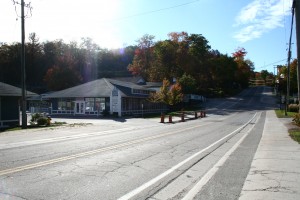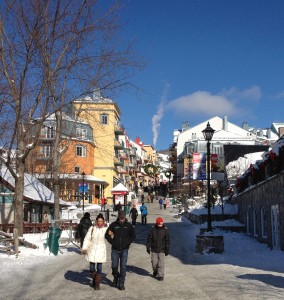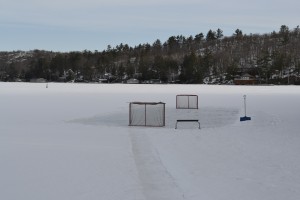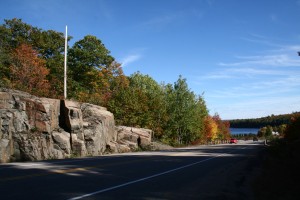No stakeholder in Muskoka disputes the fact that tourism is and has always been key to Muskoka’s economy. In fact, the District of Muskoka’s Economic Strategy report from 2008 notes that tourism is still the key economic driver in Muskoka.
And from the outside, one might think Muskoka’s tourism industry is booming. After all, highway 400 is jammed northbound every Friday evening and southbound every Sunday afternoon in the summer, and the lakeside region even nabbed the top spot on National Geographic magazine’s “10 Best Trips of Summer 2011,” a list that also included such exotic locales as Patagonia, Argentina and the Azores, Portugal.
But despite appearances, Muskoka’s tourism industry is not living up to its potential—not even close.
There are currently 4,100 available units in hotels in the District of Muskoka, which altogether with dining, shopping, and paying hotel costs generates $400 million per year, nearly as much as the $600 million from cottagers.
But according to the District, 2011 saw an average occupancy rate at 11 of Muskoka’s most prominent hotels and resorts of 45 per cent, and though many are quick to blame the short summer season, the summer months themselves only have an occupancy rate of 67 per cent.

Vacationers clear out of Muskoka as soon as Labour Day hits. But according to Brian Stanford, Muskoka has challenges attracting tourists even in the summer months.
Photo by Erin Morawetz
Politicians, business owners, cottagers, and permanent residents alike have spent years grappling with what to do in Muskoka, and how to fix this problem of declining tourism. The District of Muskoka has now turned to outside help, hiring Toronto-based hospitality and tourism firm PKF Consulting to research and write an options report for the District. The firm is looking at potential changes that could be made to the Muskoka Official Plan in order to attract more tourists, while also looking at the restrictions on resort developments to determine whether they need to be strengthened or weakened to foster a greater tourism sector in the area.
And it’s clear that something needs to change. As PKF director Brian Stanford put it at the “Resort and Tourism Official Plan Policy Review” stakeholder workshop, run jointly by the District and PKF in Nov. 2012, “We have peak-season challenges—it’s not just the off season.”
But despite some talk of these “peak-season challenges,” a prominent point of discussion at the workshop was how to market Muskoka as a four-season destination.
Many resorts, including Cleveland’s House and Windermere House, are still only seasonal operations. And James Murphy, Director of Explorer’s Edge, the Regional Tourism Organization for Muskoka and Perry Sound, part of an Ontario government initiative, said at the workshop that his research shows Muskoka is perceived as a summertime-only destination.
There are, of course, many reasons for this, starting with the fact that Muskoka has historically been a summer-only destination. In fact, according to doctoral student Andrew Watson, historically, resorts in Muskoka didn’t even consider keeping their doors open year-round.
“We have peak-season challenges—it’s not just the off season.”
“Steamboats couldn’t get up there in the winter,” he says. “And there was just no market for people wanting to go up and spend time in the winter. They didn’t even advertise. It wasn’t an option.”
Cottages, too, were not built for the winter.
“People (today) want year-round usage. People didn’t use to do that very much,” Muskoka realtor Diane McKee says. “Most of the cottages 75 years ago were unlined, frame buildings that you wouldn’t spend a winter in if you had a choice, and the road system wasn’t as sophisticated as it is now. In many cases you wouldn’t have access in the winter.”
Over the last half-century, however, cottages began to be winterized, cottage associations began to chip in to hire plows to clear snow off roads, and people began to spend time snowmobiling and engaging in other winter sports.
But Muskoka still doesn’t have that one thing that would allow it to be perceived as a four-season destination, that one main attraction that can make a place a wintertime sports haven: a ski hill.

Places like Collingwood and Mont Tremblant, pictured here in Jan. 2013, have found success as four-season holiday destinations. Unlike Muskoka, though, they have ski hills.
Photo by Erin Morawetz
Stanford said at an interim report presentation to the Township of Muskoka Lakes council on March 18, 2013 that Muskoka cannot follow a traditional resort hotel development model, where hotels are put up because there is already a reason for people to be there, because it’s missing that major draw of a hill. In this sense, Muskoka can never be a Whistler, a Mont Tremblant, or even a Collingwood—all places that have followed a successful four-season tourism model.
And another issue is that while Muskoka is seen by many as an incredibly wintry place, for the purpose of being a “winter destination,” it just doesn’t have the weather, at least not anymore.
Local business owner John Arblaster says since he opened Ella’s Place in 2005, he has seen a decline of snowmobile customers, as the weather has not been consistent and it has been getting warmer in the winters.
At the stakeholder workshop, Murphy argued that winter events held in Muskoka, such as the Canadian National Pond Hockey Championships, should be further emphasized to drum up tourism interest. But later that month, the event was moved to Haliburton for 2013. The year before, the tournament had to be cancelled because the ice wasn’t frozen in time.

Despite cold weather, it doesn’t seem like Muskoka is quite cold enough to rely on pond hockey or snowmobiling for winter tourism.
Photo by Erin Morawetz
And for Marc Letourneau, a heritage expert and professor of Canadian Studies at Carleton University who also happened to grow up in cottage country, focusing on sports to bring tourism, and thus capital, to a community can be dangerous.
“The problem you can run into with sports tourism is you’re competing with a lot of other communities that are doing the exact same,” he says.
And many of those other places have a hill.
So maybe Muskoka cannot be marketed as a four-season destination; the problem is, it doesn’t seem to be able to attract enough tourists even in the summer.
At the interim report presentation, Stanford noted that Muskoka resorts may have to go the route of Caribbean resorts, in that there is a traditional hotel model at the onset of development of new resorts, but also some sort of condominium or fractional ownership model added: mixed resort development. But PKF’s options report for the District will also be looking at the prospect of “downzoning” for some small resorts that are unable to sustain themselves—i.e. changing their zoning from resort commercial to residential, so that fractions of the property may be sold as individual cottage lots.
“The problem you can run into with sports tourism is you’re competing with a lot of other communities that are doing the exact same.”
Land use planner Anne McCauley says that downzoning from a resort commercial to a residential property should only be allowed if a resort has exhausted all other options, because downzoning causes issues with sewage systems and property density, as well as takes away employment opportunities.
In fact, historian Liz Lundell says that employment at resorts is a major reason why there is a process in place to try to ensure properties are kept zoned as resort commercial.
“Resorts were key, of course, to the development of the area, and key employers. All kinds of spin-offs come out of (resorts)—the restaurant, the room maintenance, the physical maintenance, sometimes marinas and boating and various excursions and activities,” she explains. “There were a number of people employed at each one of these properties.”
Lundell says many resorts that go the ownership model route don’t include traditional resort amenities like a restaurant or children’s groups, because they are providing the residential condominium or cottage experience, just on a resort commercial property. But downzoning to a residential property, of course, removes all potential employment from that property, something that can be detrimental if it happens too many times in a community like Muskoka, one that already struggles with high unemployment rates and seasonal employment.
One option McCauley thinks resorts need to look at before they attempt to downzone is to market themselves to new Canadians.
Realtor Brian McElwain brought this up at the stakeholder workshop, pointing out that while Canada has seen a change in ethnic diversity over the last 10 to 15 years, Muskoka has not followed suit, leaving wide open a niche market that hasn’t been tapped.
But how to do so?

Embleton says part of the Muskoka experience is the excitement one gets on the drive up north.
Erin Morawetz
McCauley says resorts in Muskoka need to change their traditions, such as the size of their dining room tables, to accommodate different cultures. But some say it is the “Muskoka tradition” itself that needs to be marketed and sold to others.
“When you’ve been here two or three generations, the trip up north, that’s part of the yearly program,” says Bruce Reville, former owner of Pinelands Resort. “With new Canadians, going north isn’t part of their tradition. They might be going back home, visiting relatives. We have to make it attractive for them to come, get out of the city, enjoy some fresh clean air.”
Judy Embleton, a former Pinelands Resort-goer, concurs.
“I just love the whole journey. I love driving and getting out of the city,” she says. “Then you see all the rocks and the sign for the Muskoka and you get this kind of rush.”
So is the Muskoka tradition something that can be marketed? Can a new generation of vacationers be persuaded to come for the cultural tourism experience?
Instead of going bigger, newer, different, more, and constantly trying to re-brand itself, perhaps Muskoka simply needs to look backward at what it was.